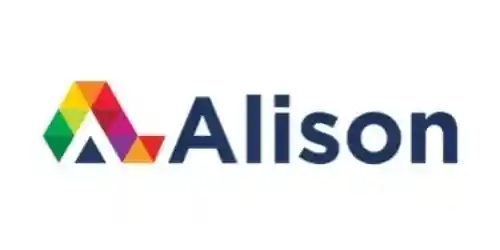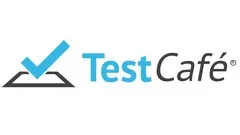
Six Sigma - Understanding Benchmarking Methods 
Get a comprehesive understanding of Six Sigma - Understanding Benchmarking Methods. This is a free course from Alison. AZ Class provides this course data for free. Learn more certificate and details here. Discover the power of benchmarking with the Six Sigma - Understanding Benchmarking Methods course. Learn how to use this highly structured strategy to improve your organization's innovation and design. Explore the ten generic benchmark categories and best practices in benchmarking. Understand the difference between process and strategic benchmarking, and uncover the widely acknowledged benefits of benchmarking. Study the Benchmarking Code of Conduct and learn from active benchmarkers. Gain insights into performance measure examples and critical success factors. With this course, you can effectively boost your organization's performance and achieve a competitive advantage. Don't wait, enroll today and take your organization to new heights. ▼
ADVERTISEMENT
Course Feature
![]() Cost:
Cost:
Free
![]() Provider:
Provider:
Alison
![]() Certificate:
Certificate:
No Information
![]() Language:
Language:
English
Course Overview
❗The content presented here is sourced directly from Alison platform. For comprehensive course details, including enrollment information, simply click on the 'Go to class' link on our website.
Updated in [October 07th, 2023]
What does this course tell?
(Please note that the following overview content is from the original platform)
First, you will look into benchmarking where you will learn how to use this highly structured strategy to improve your organization's innovation and design. The course will teach you the benchmarking process as well as how and where to source your information. You will study the ten generic benchmark categories as well as the best practices in benchmarking. You will learn the difference between process benchmarking and strategic benchmarking as well as the most widely acknowledged benchmarking benefits.
You will then study the Benchmarking Code of Conduct such as keeping everything legal, respecting confidentiality, and being willing to give what you get, among others. You will also receive lessons taught by active benchmarkers, as well as study performance measure examples and the critical success factors of benchmarking. The course will also show you Motorola's Five-Step Benchmarking Process as well as present you with management’s benchmarking challenge.
By studying the best performances being achieved by your competitors or by an entirely different industry, you can use benchmarking to effectively boost your organization. All you have to do is use the information to identify the gaps in your organization's processes so that you can achieve a competitive advantage. This Six Sigma business course contains all the information you need to achieve this goal and more! So why wait? Check out your next course, today.
We considered the value of this course from many aspects, and finally summarized it for you from two aspects: skills and knowledge, and the people who benefit from it:
(Please note that our content is optimized through artificial intelligence tools and carefully reviewed by our editorial staff.)
What skills and knowledge will you acquire during this course?
During this course on Six Sigma - Understanding Benchmarking Methods, learners will acquire the following skills and knowledge:
1. Understanding benchmarking: Learners will gain a deep understanding of benchmarking as a highly structured strategy to improve innovation and design within an organization. They will learn the benchmarking process and how to source relevant information.
2. Ten generic benchmark categories: Learners will study the ten generic benchmark categories, which provide a framework for comparing and analyzing performance across different organizations or industries.
3. Best practices in benchmarking: The course will cover the best practices in benchmarking, enabling learners to identify and implement effective benchmarking strategies.
4. Process benchmarking vs strategic benchmarking: Learners will learn the difference between process benchmarking and strategic benchmarking, allowing them to choose the most appropriate approach for their organization's needs.
5. Benchmarking benefits: The course will explore the widely acknowledged benefits of benchmarking, helping learners understand the potential advantages and outcomes of implementing benchmarking initiatives.
6. Benchmarking Code of Conduct: Learners will study the Benchmarking Code of Conduct, which includes principles such as legal compliance, confidentiality, and reciprocity. This ensures ethical and responsible benchmarking practices.
7. Lessons from active benchmarkers: The course will provide lessons taught by active benchmarkers, offering real-world insights and experiences to enhance learners' understanding of benchmarking.
8. Performance measure examples: Learners will examine performance measure examples, enabling them to effectively assess and compare their organization's performance against benchmarks.
9. Critical success factors of benchmarking: The course will cover the critical success factors of benchmarking, equipping learners with the knowledge to overcome challenges and achieve successful benchmarking outcomes.
10. Motorola's Five-Step Benchmarking Process: Learners will learn about Motorola's Five-Step Benchmarking Process, a proven methodology for conducting benchmarking initiatives.
11. Management's benchmarking challenge: The course will present learners with management's benchmarking challenge, allowing them to apply their knowledge and skills to solve real-world benchmarking problems.
By acquiring these skills and knowledge, learners will be able to effectively use benchmarking to identify gaps in their organization's processes and achieve a competitive advantage.
Who will benefit from this course?
This course on Six Sigma - Understanding Benchmarking Methods will benefit professionals and individuals who are interested in improving their organization's innovation and design. Specifically, the course will be beneficial for:
1. Managers and executives: They can learn how to effectively use benchmarking to identify gaps in their organization's processes and achieve a competitive advantage. They will also gain insights into the benchmarking process, best practices, and the Benchmarking Code of Conduct.
2. Quality control professionals: They can learn about the benchmarking process and how to source information to improve their organization's quality control measures. They will also gain knowledge about performance measure examples and critical success factors of benchmarking.
3. Business analysts: They can learn how to analyze and interpret benchmarking data to identify areas for improvement in their organization. They will also gain insights into the different types of benchmarking, such as process benchmarking and strategic benchmarking.
4. Entrepreneurs and business owners: They can learn how to use benchmarking to gain a competitive advantage in their industry. By studying the best performances achieved by competitors or other industries, they can identify areas for improvement in their own organization.
5. Professionals in the innovation and design field: They can learn how to use benchmarking to enhance their organization's innovation and design processes. They will gain knowledge about the ten generic benchmark categories and best practices in benchmarking.
Course Syllabus
Module 1: Six Sigma and Benchmarking
This module describes the benchmarking process, the key elements of the Benchmarking Code of Conduct, and management's benchmarking challenge.Course assessment
Course Provider

Provider Alison's Stats at AZClass
Discussion and Reviews
0.0 (Based on 0 reviews)
Explore Similar Online Courses

Diploma in Engineering Fundamentals of Electric Vehicles

Design of Electric Vehicle Batteries

Python for Informatics: Exploring Information

Social Network Analysis

Introduction to Systematic Review and Meta-Analysis

The Analytics Edge

DCO042 - Python For Informatics

Causal Diagrams: Draw Your Assumptions Before Your Conclusions

Whole genome sequencing of bacterial genomes - tools and applications

Selenium Fundamentals

Advanced Automation Testing with Quick Test Pro (QTP) or UFT


Start your review of Six Sigma - Understanding Benchmarking Methods